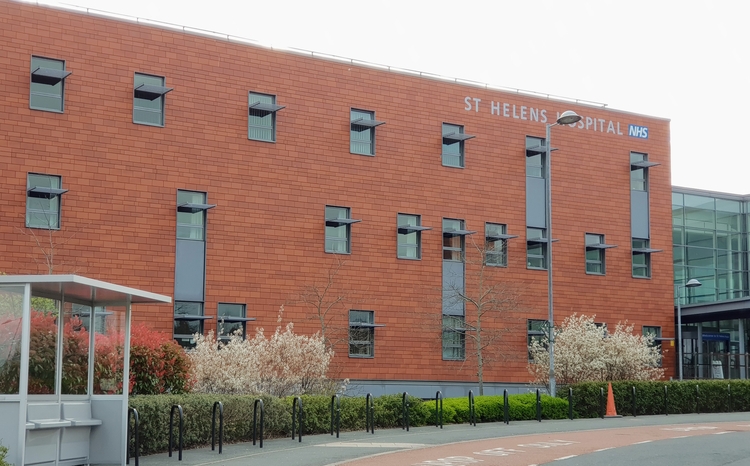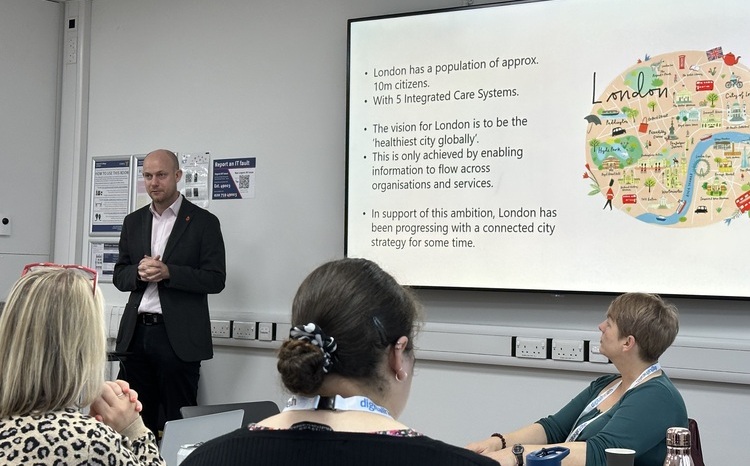Moorfields goes live with locally developed EPR
- 25 June 2007
Moorfields Eye Hospital NHS Foundation Trust in London has gone live with a new electronic patient record (EPR) system developed by the trust together with Stalis and supported by Intersystems.
The new EPR, known at the trust as the Moorfields Care Record Management Service (MCRS) is a highly specialised EPR designed to meet the particular needs of ophthalmology.
The MCRS system went live with its first patient on 10 June in a ‘big bang’ implementation across the trust and its nine outreach sites – Moorfields provides ophthalmology services for trusts including St George’s and Ealing. The migration was achieved with less than 36 hours down-time.
Speaking of the implementation, Ian Balmer, chief executive for Moorfields Eye Hospital, paid tribute to the dedication of trust and Stalis staff in ensuring the success of the go-live. “As a Foundation Hospital and a national referral centre, we are dependant upon our contracts with Primary Care Trusts throughout the country. This new system is vitally important to our performance and its introduction comes after ten months of meticulous planning”.
Data migration and the patient data repository are both based on CareXML supplied by Stalis, which incorporates a patient data repository and Intersystems Ensemble integration technology. This runs in conjunction with and integrates the a Silverlink patient administration system, delivered by Stalis under license, and the trust-developed clinical workstation.
"We have the PAS under license from Silverlink and the clinical workstation has been developed initially by the trust," Christine Whitehouse, Stalis’ managing director, told E-Health Insider.
Moorfields and Stalis began the project to implement the EPR in September 2006, after Stalis took over responsibility for the ePatient clinical workstation that the trust had developed with Target 4.
Using these technologies Stalis says it was able to help the trust successfully migrate 20 years of patient data, and successfully move almost 5,000 appointments despite changes to clinics. Thanks to the use of the XML patient data repository the move was carried out without interrupting the reports needed by the trust were not interrupted.
Moorefield’s MCRS replace an old 1980s bespoke system that had come to the end of its life. The new EPR system is said to be compliant with the requirements of the NHS National Programme for IT.
As a London NHS trust Moorfields is officially meant to receive Cerner Millennium from local service provider BT, but lengthy delays in the NHS IT programme in the capital mean BT has yet to install the software at any acute trust. But as an independent Foundation trust the organisation faced a number of urgent information requirements to secure contracts and revenue.
At Moorfields the new EPR is powered by the Silverlink Patient Care System (PCS), one of the UK’s most widely used Patient Administration Systems. Together the EPR and PAS systems provide the trust with a fully NPfIT compliant solution able to support Choose and Book and support meeting 18-week referral to treatment pathways.
Stalis says the CareXML EPR it has provided is built around its Patient Data Repository, which incorporates InterSystems’ Ensemble integration technology. As a fully integrated EPR, support is provided for staff and clinicians throughout the Trust.
Christine Whitehouse, Stalis’ managing director, commented “Moving the trust from a highly functional but specially developed PAS to a standards based solution required a very close working relationship between trust personnel and our team. The challenge was to jointly change hospital processes to take advantage of a comprehensive integrated and inherently more flexible function set and latest technologies combined with the need to meet stringent NPfIT standards”.
Whitehouse added: "One of the key objectives for the Trust was to assure business continuity over the transition both operationally and for ongoing management reporting. With nearly 20 years of historical data, much of it associated with long term patient care, the challenges associated with the migration and on going storage of the data were immense." She said that by using the Stalis CareXML repository and associated tools it was possible to assure the quality of the data, and support the trust on its reporting from day one.
"In the event the actual go live required no more than 36 hours operational downtime for the final migration and testing processes to be completed and the objective of migrating the majority of appointment bookings (over 5000) to the new system was achieved (all bar 160 being automatically rescheduled) despite major changes in clinic structures and organisation on the new system," said Whitehouse.
Once the new EPR was up and running, data feeding back in near real time into the CareXML repository was available for continued management reporting.
Barrie Winnard, Moorfield’s head of IT, said “Without the use of a repository such as CareXML the work involved in ensuring data quality and consistency for maintaining management information would be near impossible to achieve”.
Planning is now underway for the next phases of the trust’s MCRS programme which includes significant developments in clinical and management reporting capabilities.
"Currently the trust has a stand-alone theatres module, which they are looking at potentially integrating. Other clinical priorities include order communications," said Whitehouse. "They are trying to wind up with something with a common look and feel across clinical care and administration tools."
Opened in 1805, Moorfields Eye Hospital NHS Foundation Trust is the oldest and largest specialist eye hospital in the world, and became one of the UK’s first NHS Foundation Trusts in 2004.
Stalis is currently working with a number of trusts in the Southern cluster of the NHS IT programme to support their data migration and historic archive requirements in their move to Cerner Millennium.




